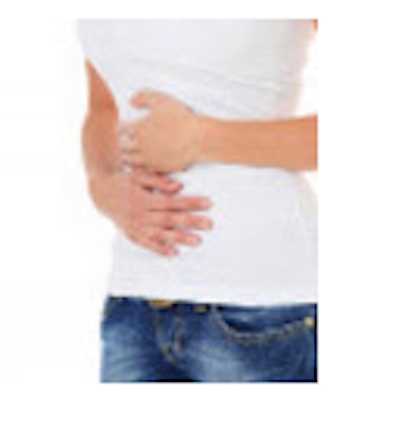
Ulcerative colitis is part of a category of diseases called inflammatory bowel disease (IBD), and it presents with inflammation in the lining of the large intestine, specifically the colon and sometimes the rectum. The lining becomes inflamed due to small wounds or ulcers, which then produce mucus and pus.
The condition occurs when the body mistakenly identifies food or other substances as foreign invaders. White blood cells are called up as part of an immune response, which proceeds to cause inflammation and damage in the large intestine. Flare-ups may be triggered by stress, infections, and certain anti-inflammatory drugs such as aspirin or ibuprofen. However, the exact cause of ulcerative colitis is not known, but medical researchers suspect a link between a person’s genetics, the general state of the immune system, and environmental factors.
Most people start showing symptoms in their 30s since the disease advances slowly over time, and men and women are equally as likely to be affected. Children are also at risk and, in general, the younger a child is the more likely the symptoms and complications will be severe. Growth and mental development may be a problem in this case.
The inflammation and ulceration associated with ulcerative colitis can cause pain and different problems, including frequent, watery diarrhea, persistent diarrhea with pain and bloody stool, urgent bowel movements, incomplete evacuation of the bowels despite a feeling of urgency, abdominal cramping, loss of appetite, weight loss, body fluid depletion, fatigue, fever or urgent diarrhea that wakes you up in the middle of the night.
The symptoms and how long they can occur vary widely for each patient. Many sufferers report only mild or moderate symptoms, while others experience life-threatening complications such as severe dehydration and major bleeding from the colon.
Acupuncture and Chinese medicine are equipped to handle the symptoms of ulcerative colitis as demonstrated by a meta-analysis of different scientific studies conducted since the 1990s. A team of researchers conducted a wide-scale analysis of 43 randomized, controlled trials investigating the efficacy of acupuncture and moxibustion for the treatment of irritable bowel disease. Of those 43 trials, 42 specifically analyzed and addressed ulcerative colitis.
Researchers then focused on 10 scientific studies that compared the use of acupuncture and moxibustion to the use of oral sulphasalazine for symptom relief. Sulphasalazine is a doctor-prescribed pharmaceutical drug that is commonly used in the treatment of ulcerative colitis and rheumatoid arthritis. After analyzing the studies, researchers concluded that “acupuncture and moxibustion demonstrated better overall efficacy than oral sulphasalazine in treating inflammatory bowel disease.” This meta-analysis was performed by a team at the Shanghai University of Traditional Chinese Medicine in Shanghai, China. The study was published in the 2013 issue of Evidence-based Complementary and Alternative Medicine, a peer-reviewed medical journal covering alternative medicine.
